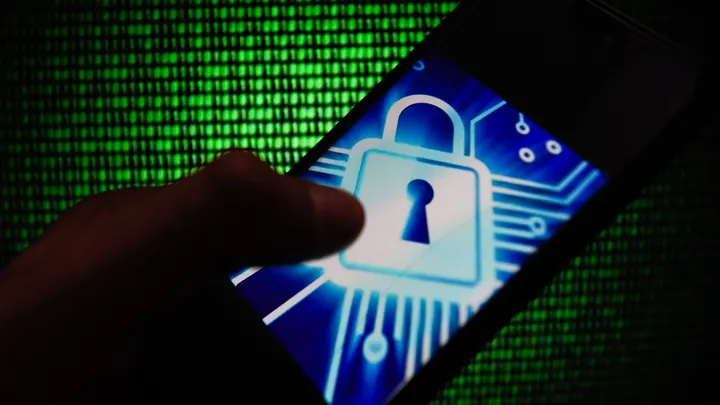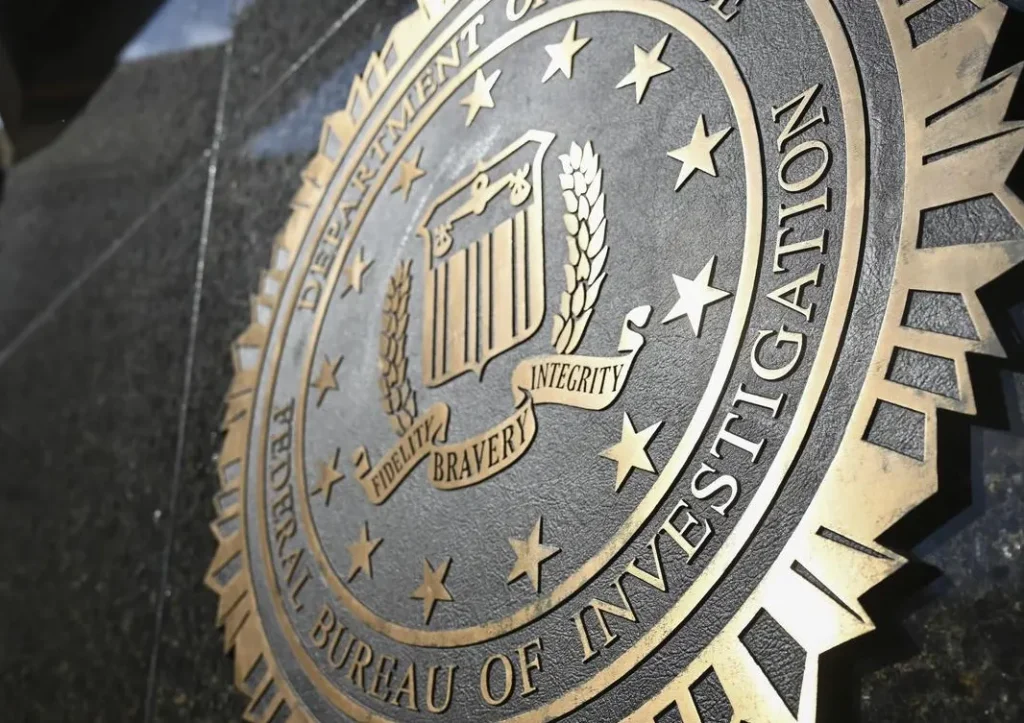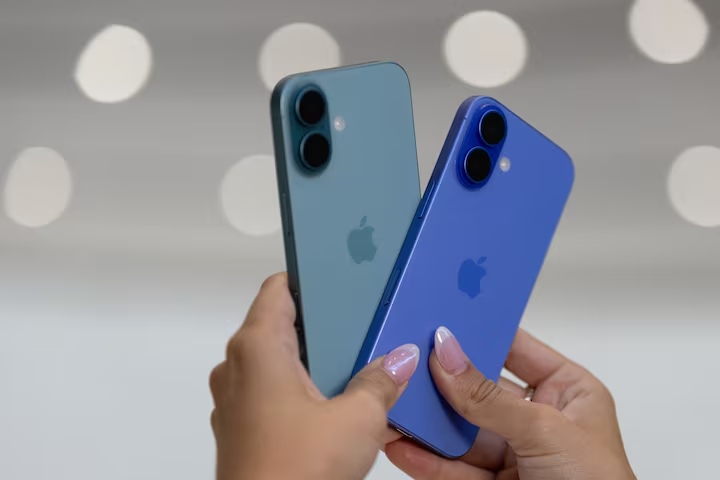FBI says iPhone, Android users should stop texting each other. Here’s why

In a surprising announcement that has captured the attention of millions of smartphone users, the FBI has issued a warning advising iPhone and Android users to reconsider texting one another, citing concerns over security vulnerabilities. The statement comes amid growing fears regarding potential exploits of cross-platform messaging systems, which could compromise sensitive personal information and pose a threat to privacy.
This move has raised several questions, including why the FBI would specifically single out iPhone and Android communication, and whether users should be worried about the safety of their text messages. Let’s break down the details of this warning, explore the potential security risks, and discuss how users can protect themselves from these vulnerabilities.
What Did the FBI Say?
The FBI’s warning centers around the security risks associated with sending text messages between devices running different operating systems — iPhones, which operate on Apple’s iOS, and Android phones, which run on Google’s Android OS. According to the FBI, these devices may be susceptible to certain types of hacking attacks and security flaws that could leave users’ data exposed, especially when communication occurs between the two different platforms.
One of the main concerns mentioned by the FBI is that iMessages sent from iPhones to Android phones (or vice versa) could be intercepted or manipulated by hackers. Since the two platforms do not share the same secure messaging protocols, data sent between them could be more vulnerable to various types of cyber-attacks, such as man-in-the-middle attacks, where a third party intercepts the message in transit.
Although the FBI’s warning did not directly suggest that users stop texting one another entirely, it did urge users to be cautious when sending sensitive information over text messages. The FBI also recommended that users consider alternative, more secure communication methods, such as encrypted messaging platforms, which provide end-to-end encryption to protect the contents of the message from being read by unauthorized parties.
Why Is This a Concern?
The main reason the FBI has raised the alarm about iPhone and Android communication is rooted in the way these devices handle text messages. iMessages, which are Apple’s proprietary messaging service, are encrypted end-to-end when sent between Apple devices. This means that only the sender and the recipient can access the content of the message, and not even Apple can decrypt it.
However, when an iPhone user sends a text to an Android user, the message switches from iMessage to SMS or MMS (Short Message Service or Multimedia Messaging Service), which is not encrypted. SMS/MMS text messages are typically sent through mobile carriers’ servers, which could be vulnerable to interception or hacking. This lack of encryption makes it easier for attackers to access the contents of a message, especially when the message is transferred from one platform to another.
On top of that, hackers may exploit security vulnerabilities that exist in either the iPhone or Android operating systems. This can allow malicious software to access sensitive data stored on the device, such as contacts, messages, photos, and even location information. Cross-platform communication can further amplify these vulnerabilities, as the different systems may not always share the same security protocols, leaving potential gaps in protection.
Furthermore, messages sent between iPhones and Android devices are sometimes routed through third-party servers, especially if they contain multimedia (e.g., photos, and videos). If these servers are not secure or are compromised by attackers, there is an increased risk that the message’s contents could be accessed, stored, or leaked.
The Growing Threat of Cyberattacks
The rise of cyber-attacks targeting smartphones and personal data has made headlines in recent years, and the issue of text message security is one of the most pressing concerns for tech experts and law enforcement agencies. From ransomware attacks to phishing schemes, criminals have become increasingly sophisticated in their methods of targeting users’ private information.
One of the most significant security concerns raised by the FBI is the potential for hackers to exploit these vulnerabilities in a large-scale attack. Hackers could use malware, spyware, or other malicious tools to target both iPhone and Android users, gaining access to sensitive data through text messages. This could be particularly dangerous if individuals or organizations are communicating confidential business information, personal banking details, or other high-value data over insecure messaging services.
In some cases, attackers might use text messages as a vehicle for spreading viruses or malware. By sending links that appear to come from trusted sources, cybercriminals can trick users into clicking on malicious links, allowing them to infect the device with harmful software. Once installed, this software can capture keystrokes, access text messages, track location, and even steal passwords, making it easier for attackers to gain unauthorized access to accounts or personal information.
What Can Users Do to Protect Themselves?
In response to the FBI’s warning, users are advised to take extra precautions when communicating over text messages, particularly when using iPhones and Android devices. Here are a few steps that users can take to enhance their security:
- Use Encrypted Messaging Apps: For sensitive communication, consider using encrypted messaging apps such as Signal, WhatsApp, or Telegram. These apps provide end-to-end encryption, ensuring that the contents of your messages remain private and secure, regardless of the device or platform.
- Avoid Sharing Sensitive Information Over Text: Refrain from sending sensitive personal information, such as passwords, financial data, or social security numbers, via SMS or MMS messages. Instead, use more secure methods of communication, such as email encryption or secure cloud-based services.
- Update Your Device’s Software Regularly: Ensure that both your iPhone and Android devices are running the latest software updates. Manufacturers frequently release patches and updates that address security vulnerabilities, so keeping your device up-to-date is crucial in preventing hackers from exploiting known issues.
- Enable Two-Factor Authentication (2FA): Activate two-factor authentication (2FA) for your important accounts, such as email, banking, and social media. 2FA adds an extra layer of security by requiring a second form of verification (e.g., a code sent via text or email) in addition to your password.
- Be Cautious of Suspicious Links and Attachments: Never click on links or download attachments from unknown or untrusted sources. Hackers often use these methods to distribute malware or steal personal information.
- Consider Alternative Communication Channels: If you need to discuss highly sensitive information, consider using a more secure form of communication, such as encrypted voice calls, secure messaging apps, or encrypted email services.
- Educate Yourself About Phishing Attacks: Be aware of phishing schemes and other tactics that criminals use to manipulate users into revealing their personal information. Always verify the sender’s identity before responding to text messages or emails.
The FBI’s warning about iPhone and Android communication is a reminder of the growing cybersecurity risks faced by smartphone users. While texting remains one of the most convenient and widely used forms of communication, it is also one of the most vulnerable to exploitation. Users should take proactive steps to secure their devices and communication channels, particularly when sharing sensitive information.
While the FBI’s warning doesn’t mean users need to stop texting one another entirely, it does highlight the importance of being mindful of the security risks associated with cross-platform messaging. By adopting best practices for digital security, users can better protect themselves from potential threats and ensure their data remains safe from prying eyes.






